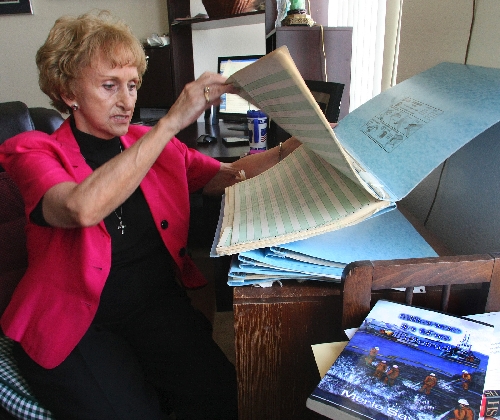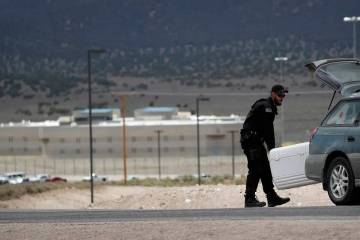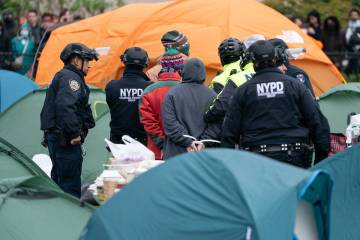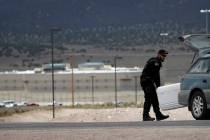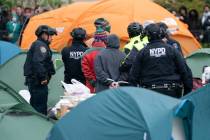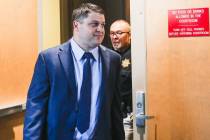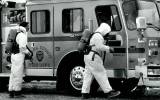Exxon Valdez oil risks spur warning for gulf cleanup crews
They called it the "Valdez crud," but it was more than a cough and diarrhea.
"We thought it was a flu that was going around and everybody kept getting it," said Merle Savage, who was general foreman of the cleanup crews of the 1989 Exxon Valdez oil spill in Alaska's Prince William Sound.
Instead, the stuff that was making cleanup workers sick was a toxic cocktail of oil droplets in mist they inhaled from spraying the shoreline with hot water and chemicals that were used to disperse the spill's massive black wave.
Now Savage wants today's workers to be aware of similar risks they might face in cleaning up the even bigger BP oil spill in the Gulf of Mexico.
Savage, who wrote a book, "Silence in the Sound," about the Exxon Valdez cleanup, recounts those risks as she sits in the upstairs "Alaska Room" of the North Las Vegas home where she now lives with her son and daughter-in-law.
Many of the thousands of Exxon Valdez cleanup workers have died or have become seriously ill from inhaling the toxic mist and handling dispersants that contained benzene and other chemicals.
Of dozens of lawsuits that were filed by sick workers, seven were settled out of court and the records have been sealed.
One cleanup chemical, 2-Butoxyethanol, can be absorbed through the skin and cause blood and kidney damage resulting in headaches, respiratory problems and even death, according to the material safety data sheet for the dispersant, INIPOL, which was used in the cleanup of the Exxon Valdez spill.
After she wrote her book in 2003, Savage teamed up with marine toxicologist Riki Ott to warn about the dangers involved with cleaning up oil spills. In a video with Ott, Savage described the shoreline cleanup as being "like a war zone."
"What we know now is the oil is 1,000 times more toxic than we thought," Savage said. "The BP spill is going to be worse. I'm warning workers to understand how toxic the crude oil can be."
Savage's personal experience is that the ill effects have lingered for years.
"When I came to Las Vegas in 1995, I was sick. I had bronchial problems," she said. "I lived with extreme diarrhea day in and day out for years."
During that time she has had severe pain in her joints and underwent a biopsy for a spot on her liver.
"They said I was an alcoholic, but I don't drink and I don't smoke," she said.
While pain pills and other medications didn't work for her problems, Savage researched some natural remedies.
"I found out about toxic chemicals and detoxed myself with a lemon juice concoction," she said. "And I sleep on a blanket with magnets in it. It gets your system back in shape.
After the Exxon Valdez ran aground on March 24, 1989, Savage signed on to be a cleanup worker.
"I worked two weeks on the spill, holding a hose with hot water gushing out and steam coming up," she said. "At first we didn't have masks. But later on we had paper masks that wouldn't last a day.
"There was crude oil and dead seaweed all around. The smell from that was horrible."
The rain gear workers wore would be cleaned using a solution that contained benzene and other chemicals, Savage said.
She eventually was promoted to the post of general foreman.
Even though workers would become sick, most didn't want to be sent from the boats and barges back to Valdez because they didn't want to lose their jobs.
"Everybody on my barge was complaining and throwing up," she said. "Even I was sick."
Before she left her boat at the end of the cleanup, she kept computer printouts of the workers' roster.
Little did she know then that the names would become a valuable resource in her effort to make them and their families aware of the toxic exposures they endured.
"I've had children who had parents who were cleanup workers and brothers, too. I know of 30 people who have contacted me since," Savage said.
"Thousands of people are suffering from the Valdez cleanup with no compensation. And there were Exxon officials on each barge. I knocked heads with a couple of them."
Contact reporter Keith Rogers at
krogers@reviewjournal.com or 702-383-0308.
See 'Silence in the Sound, The Adventure', here.




